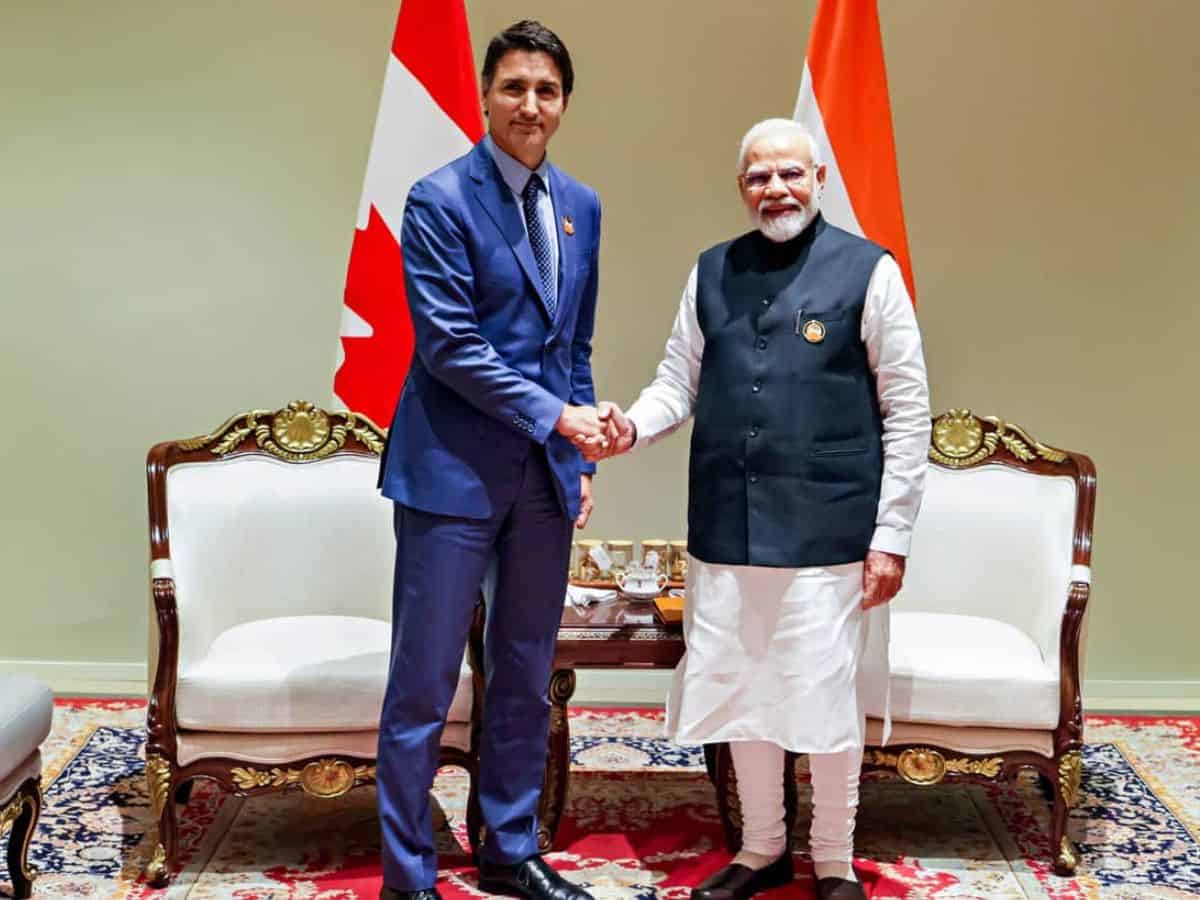
The relations between India and Canada have suddenly soured after Canadian Prime Minister Justin Trudeau alleged that security agencies have “reason to believe” that agents “linked to the Indian government” carried out the killing of Khalistani leader Hardeep Singh Nijjar in British Columbia on June 18.
Following the allegation, Canadian Foreign Minister Melanie Joly announced on Monday that an Indian diplomat in the country had been expelled.
In a tit-for-tat move, India expelled a senior Canadian diplomat on Tuesday, who has been asked to leave within the next five days. India has also rejected claims by the Canadian government that it had any involvement in the killing of Nijjar.
Canadian Embassy in New Delhi
Hours after India expelled the Canadian diplomat, the Canadian Embassy in New Delhi asked its local staffers to leave the premises at noon, according to sources.
The sources said that the locally engaged staff at the Embassy were asked to vacate the premises immediately due to the current diplomatic tensions.
The sources further mentioned that in email communication, all the employees have been instructed by the authorities at the Embassy not to speak to any media or post anything on social media.
Security has been tightened around the High Commission of Canada in the national capital as a precautionary measure.
Meanwhile, the Canadian government issued a travel advisory on Tuesday, advising its citizens to “exercise a high degree of caution” when traveling to India.
Pro-Khalistani outfit calls for ‘shutdown’ of Indian consulates in Canada
A pro-Khalistani outfit, calling for a ‘shutdown’ of Indian consulates in Canada, has announced peaceful protests beginning next week.
Nijjar, who was spearheading the Khalistani referendum in Canada, was fatally shot in the parking lot of Guru Nanak Sikh Gurdwara in Surrey city, British Columbia, after evening prayers on June 18 this year.
The Sikhs for Justice, an outfit outlawed in India, stated that protests are scheduled to take place outside Indian consulates in Ottawa, Toronto, and Vancouver on September 25, as reported by Vancouver-based Global News.
International response on India-Canada relations
Reacting to the developments, US National Security Council spokesperson John Kirby said on Tuesday, “These are certainly serious allegations, and we believe that in order to determine how credible they are, there needs to be a thorough investigation.”
“Prime Minister Trudeau has called for that, and so we’ll see how Canada moves forward on this. It’s certainly well within their capacity to do this, and we urge India as well to participate and cooperate in that investigation,” Kirby added, emphasizing the importance of finding out exactly what happened.
Australian Prime Minister Anthony Albanese declined to comment on the matter, stating, “I don’t talk about Five Eyes intelligence at a press conference, funnily enough,” in response to a question about India’s alleged role.
“The Five Eyes (FVEY) is an intelligence alliance comprising Australia, Canada, New Zealand, the UK, and the US.”
UK Foreign Secretary James Cleverly put out a tweet that made no mention of India at all.
“All countries should respect sovereignty and the rule of law. We are in regular contact with our Canadian partners about serious allegations raised in the Canadian Parliament. It’s important that Canada’s investigation runs its course and the perpetrators are brought to justice.”
Canadian response following escalation in diplomatic tensions
Following the escalation in diplomatic tensions, the Canadian Prime Minister said on Tuesday that he is not aiming to provoke India.
“The government of India needs to take this matter with utmost seriousness. We are doing just that… We are not looking to provoke or escalate,” Trudeau said in the morning briefing before the House of Commons started.



